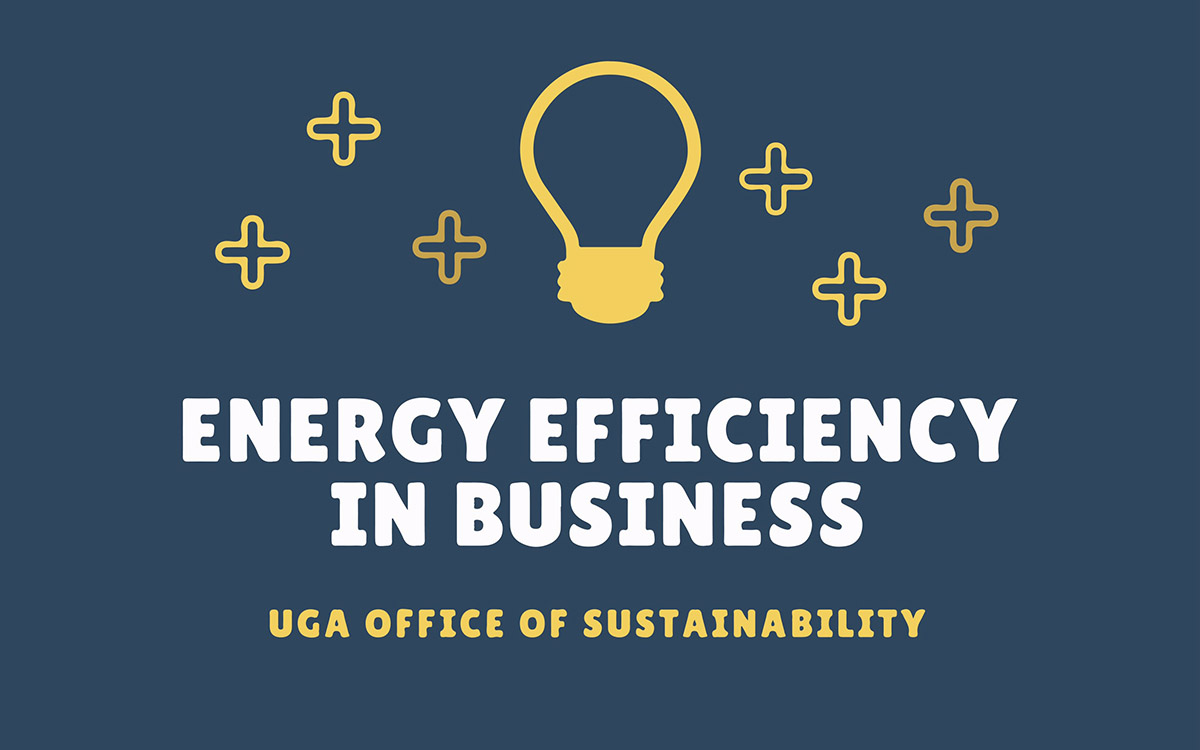Renewable Energy and Business: Not Mutually Exclusive
Lara Strydom
Monday, November 9, 2020

Economics of Renewable Energy
With fossil fuels being responsible for 80% of U.S. energy consumption, many Americans might be concerned with the financial implications of a transition to renewable energy. However, the Environmental Protection Agency reports that switching to renewable energy can actually help businesses cut down on their energy costs, due to the nature of solar energy and wind energy.
“For a while, the argument was to move to renewables in order to reduce emissions, and that argument was met with some barriers. Now, the argument is to move to renewables because that’s the smartest way to run the economy,” Richard Watson, Energy Informatics Professor at Terry College of Business, said.
While the initial installation of renewable energy sources can be high-priced, the ROI (return on investment) pays itself off overtime by reducing power bills. Because solar energy and wind energy are powered by nature, businesses that use these sources can reduce their dependence on mainstream power services — reducing the amount of bills they have to pay to these sources.
Renewable Energy in Business
“I think business and sustainability can 100% go together. I think consumers — especially the younger demographic and consumers — want to believe in the products that they're buying,” Dustin Watts, president of Terrapin Beer Co, said.
In January 2020, local Athens brewery Terrapin installed a total of 720 356-watt solar panels on their roof. Now, solar counts for 30% of their energy sourcing. The use of solar energy is just one of many sustainability action items implemented by the company’s sustainability initiative: “Terraprint.”
“We feel like it's part of our duty as an Athens brand and as a brand within the Southeast, to push on the sustainability side of things and try to be a leader in that space,” Watts said.
In addition to energy, the Terraprint initiative also focuses on sustainable practices like composting, recycling, and water treatment. For example, Terrapin has a wastewater pretreatment facility in which they separate the solids from the water that goes down their drains. This helps clean the water before it gets sent back out to the municipality.
“Our motto is that we have always wanted to be bigger than beer. That means doing things outside of who we are as just a brewery and a beer producer,” Watts said.
Terrapin is just one of many local organizations in Athens that have committed themselves to solar energy. Nuci’s Space — a non profit dedicated to suicide prevention among musicians — switched to solar panels in 2017.
“We may focus on suicide prevention, but what what we really do is look out for our community. And so I think it was just an extension of what we already do,” Bob Sleppy, Nuci’s Space executive director, said.
Initially, Nuci’s Space did not have the funds to get solar panels until Solarize Athens provided them with an $11,000 grant. Since then, the organization has been saving $3,000 per year on energy.
“I think we’re starting to see more of that — where sustainability doesn’t just make environmental sense, but also makes business sense,” Sleppy said.
Similarly, Watts spoke on how having socially responsible initiatives like Terraprint allow for his employees to feel proud of the work that they do, thus increasing company morale.
“Everybody’s excited to come to work and make good beer, and then we all get to do these other awesome things for the community from a sustainability standpoint. And when your employee base is happy, that’s a huge ROI,” Watts said.
Takeaways from the Field
Reducing fossil fuel emissions are more important than ever before, as the effects of climate change have been seen in our warmer winters, the increased intensity of natural disasters, and the severity of the 2020 wildfires in both Australia and California.
In his energy informatics class, Watson often gets students who want to pursue sustainability in the business world. He said the biggest obstacles he sees students run into is that they aren’t immediately able to get a job directly in sustainability after graduation. However, Watson stated that networking within your company/business could eventually lead to a sustainability position.
“We have a graduate from about six years ago who is now responsible for global environmental sustainability with Microsoft Datacenter Community Development. She started off as a regular data analyst, but she eventually worked her way up to the position through networking and making it known that she wanted to be in a sustainability position,” Watson said.
For students aspiring to pursue sustainability in the business world, Watts emphasized the importance of creating a safe space for open-minded conversations in the workplace when it comes to proposing sustainability initiatives.
“In some ways, there’s a level of intimidation when it comes to talking about big topics like sustainability. A lot of people want to talk with the people they work with about being more sustainable,” Watts said. “But I think the issue is that they always step back because they're nervous to say something wrong.”
Sleppy emphasized the importance of encouraging even the seemingly small sustainability habits within the workplace. Because while things like using reusable plates and learning to recycle the right items might not seem like a lot at first, it could eventually become the norm among everyone in the workplace.
“We're all creatures of habit. But if we can just change some of those habits and encourage others to do the same, we can make a big difference,” Sleppy said.
(Editor’s Note: To learn more about energy systems at UGA, please visit https://sustainability.uga.edu/campus-operations/energy/)